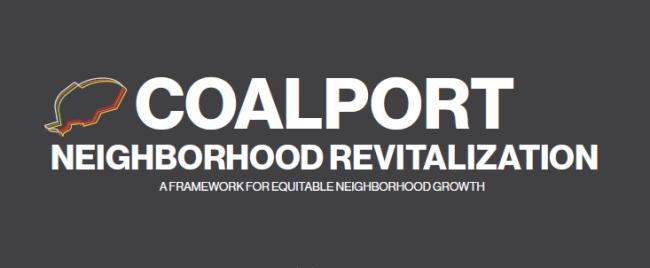
Coalport Neighborhood Revitalization Planning Project
About the Project
The Coalport Neighborhood Revitalization Project is a research and planning effort to envision the revitalization of the historic Coalport neighborhood located in New Jersey’s capital city of Trenton. The project is led by the John S. Watson Institute for Urban Policy and Research, and the Michael Graves College School of Public Architecture, working directly with community-based organizations and neighborhood residents.
Started in Fall 2023, the project explores economic development and social mobility opportunities for neighborhood residents while considering longstanding environmental justice issues. It aims to provide a revitalization framework for the Coalport community through interdisciplinary engagement and innovative planning that advances a comprehensive blueprint for sustainable neighborhood revitalization centered on equity, healing and justice.
- In the first year (2023-2024), the project team will actively engage in community events, conduct historical research and build on insightful, data-driven recommendations from The Practice of Democracy to enhance economic health, environmental resilience and the overall quality of life for residents in the Coalport area.
- In the second year (2024-2025), the project will deepen its focus on assessing community needs through local engagement events, leading into student- and faculty-led initiatives for space development that reflect and serve the community’s aspirations.
Why Coalport?
● Trenton became an industrial manufacturing hub in the 1850s, which declined in the 1920s; the Coalport area was particularly known for exporting pottery.
● In the late 1950s, Trenton faced economic, social and racial challenges, leading to urban decay, population decline and a failed redevelopment effort in Coalport.
● The Federal Model City initiative allocated over $2 million for Coalport's redevelopment and demolished a significant portion of the neighborhood for new industry, but poor planning and unforeseen challenges left the site undeveloped.
● Environmental justice is a priority for current revitalization plans, as the EPA investigates industrial contamination and extensive lead pollution in the soil and water.
● Early research shows Coalport residents suffer from poor health, lack of health care access, and socioeconomic challenges, prompting the project team to engage with the community for a better future.
Project Goals
This project addresses the historical inequities of urban renewal policies that have long plagued neighborhoods like Coalport. By amplifying the generational narratives of residents, the project places their voices and experiences at the forefront of redevelopment efforts. This approach ensures that the outcomes of revitalization are not only inclusive but also restorative. In addition, this process seeks to reinvigorate the culture and legacy of this community that was bulldozed and uprooted during the urban renewal projects of the 1950s in cities across America. We hope this project can serve as a template and catalyze the necessity to center equity and social justice for urban communities around the country. The revitalization plan may propose actions like:
● Developing new and renovated housing stock
● Facilitating new employment opportunities for residents
● Creating better education and recreational opportunities
● Increasing access to improved public spaces
● Building connections to adjacent communities for additional opportunities
How to Get Involved
Local residents can get involved by participating in community visioning sessions and providing input to develop the revitalization plan. The Watson Institute and the School of Public Architecture will actively gather and incorporate community feedback throughout the planning process.
For more information, please contact grant coordinator, Solomon Stewart (sostewar@kean.edu)